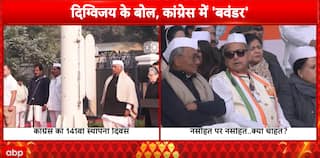Centenary Of The ‘Great Trial’: Mohandas Gandhi And The Colonial State

Prologue
Exactly a hundred years ago, on March 18, 1922, Mohandas Gandhi, already the Mahatma, was put on trial on charges of sedition and ‘inciting disaffection’ against the Government of British India. The event has gone down in history as ‘The Great Trial’ — though Gandhi was convicted and sentenced to a six-year term in prison, only to be released after two years owing to poor health and ‘good behavior’, he is commonly thought to have achieved a stupendous moral triumph. History has recorded few other trials where the proceedings were marked by such civility, decorum, and even chivalry, and where the presiding judge appears to have been embarrassed and the accused seems to have been eager to plead guilty to the charges.
Just what did happen that day, and how did Mohandas Gandhi, who both claimed strict allegiance to the rule of law and the right of every person to violate a law that was unjust or which the conscience dictated as violative of the spirit of the law, end up before the court?
I: The Incident of Chauri Chaura, the Arrest of Gandhi, and Political Trials In India
It was early 1922 and India was in the thick of the noncooperation (asahayoga) movement that Gandhi had launched in 1920. On February 4, in a dusty market town known as Chauri Chaura, not far from Gorakhpur, Uttar Pradesh, 23 policemen were killed after a violent encounter with Congress and Khilafat volunteers. Gandhi, the de facto generalissimo of the Congress, construed this mob violence as unimpeachable evidence of the fact that the country was not yet ready for swaraj and unilaterally decided to suspend the nation-wide noncooperation movement.
Most other Congress leaders were surprised, even shocked, at this decision: some took the view that only the Congress Working Committee was empowered to make such a decision, while others thought that Gandhi had blundered terribly. But characteristically Gandhi remained firm: as he was to write in Young India on February 16, those who could not read the signs were incapable of understanding that the gruesome violence at Chauri Chaura "shows the way India may go, if drastic precautions were not taken".
If the country was aggrieved by the withdrawal of noncooperation, the British were doubtless relieved. Gandhi had in December 1920 promised the country swaraj in one year if Indians followed the path of ahimsa. A year had elapsed and Gandhi had evidently failed, and the British did not doubt that his credibility and prestige would suffer. For the previous six months, British officials in the government of Bombay Presidency, the Government of British India, and at the India Office in London had vigorously debated whether Gandhi should be arrested and, if so, when. He had posed a relentless challenge to British rule, describing it as ‘Satanic’, and in articles published in Young India he had repeatedly thrown the gauntlet to the British and called for their overthrow.
In ‘A puzzle and its solution’, published on December 15, Gandhi wrote in an unmistakably strident tone that "we seek arrest because the so-called freedom is slavery. We are challenging the might of this Government because we consider its activity to be wholly evil. We want to overthrow the Government. We want to compel its submission to the people’s will."
In ‘Tampering with Loyalty’ published on 29 September 192, Gandhi had offered an intolerable provocation in enjoining Indian soldiers to renounce their allegiance to the British crown: it is "sinful for anyone, either as soldier or civilian", he wrote, "to serve this Government which has proved treacherous to the Mussulmans of India and which has been guilty of the inhumanities of the Punjab". To leave this rabble-rouser and seditionist alone was to invite disdain for the government and make it look weak.
On the other hand, there seemed to be equally compelling arguments for keeping him out of prison. Gandhi seemed to turn every liability and restraint into an advantage: a prison term might make a martyr of him, and that too at a time when his influence seemed to be on the wane; moreover, he seemed to emerge from every term in prison a rejuvenated person. Gandhi was also thought to exercise a moderating influence in the public sphere, keeping those who were tempted into using violence at bay. On this view, Gandhi was to be arrested only when his freedom could no longer be tolerated.
In the aftermath of Chauri Chaura, and the suspension of the noncooperation movement, the moment for depriving Gandhi of his liberty seemed at hand. In putting him on trial, the British unquestionably thought that they were offering a remarkable demonstration of their allegiance to the ‘rule of law’. Where another colonial power might have put away a rebel for life, or rendered him incognito, the British prided themselves on adhering to notions of ‘fair play’ and ‘due process’. The political trial had certainly occupied a remarkable place in the arena of state activities in colonial India, and many nationalists before Gandhi had been hauled into the courtroom, often under Section 124A of the Indian Penal Code.
However, even here the risk of holding a trial, which offered political dissenters a platform from where they could launch into a blistering critique of the colonial state, was not without considerable risk. The greater majority of the nationalists were credentialed in law and some had shown themselves perfectly in command of the law and the protocols of the courtroom. Tilak’s trial on charges of sedition in 1908 was a demonstration of his mastery of English common law and juridical skills, but it showed equally well that the conviction of political dissenters was almost always a foregone conclusion.
II: The Trial of Gandhi, or Trial of the State?
Before Gandhi could be brought to trial, he had to be charged with a particular offence. The articles in Young India were deemed to be seditious, and three in particular were identified as ‘bringing or attempting to bring into hatred or contempt or exciting or attempting to excite disaffection towards His Majesty’s Government [established] by law in British India’. It is notable that the word ‘sedition’ as such does not appear in this ‘charge’, but Secion 124A IPC was derived from the law on sedition in England. In the early 20th century, sedition was scrapped as a political offence in England, but growing anti-colonial activity in India convinced the British that it remained the most potent weapon of thwarting the nationalist movement in India and in other colonies where the same or similar statue remained on the books.
On the afternoon of March 11, 1922, Gandhi and Shankarlal Banker, the publisher of Young India, were arraigned before the magistrate; when asked to list his profession, Gandhi wrote down: ‘weaver and farmer’. We do not know with what countenance the clerk received this information. He probably thought it was disingenuous of the author of the doctrine of Satyagraha to describe himself as a farmer, but Gandhi indeed farmed vegetables at his ashram. Moreover, he retained a profoundly ecological view of the world and always retained a regard for the Indian peasantry as the custodian of the ‘soul’ of Indian civilisation. With his self-ascription as a ‘weaver’ one is similarly inclined to interpret this metaphorically, to suggest the intricate web of morality and politics that Gandhi spun around a beleaguered colonial regime. But that recognition should not obfuscate the fact that the icon of the spinning wheel was an inalienable part of Gandhi’s identity and a testament to his unflinching belief in the integrity of labour. A humble farmer and weaver, and only incidentally, it seems, the progenitor of a unique movement of nonviolent resistance, was now pitted against the might of an empire.
One week later, at noon on March 18, Gandhi was wheeled into the Circuit House at Shahi Bagh. The courtroom was full: in attendance were some of Gandhi’s closest associates in Ahmedabad and at Sabarmati Ashram, as well as Jawaharlal Nehru and Sarojini Naidu. Everyone "rose', Naidu wrote, "in an act of spontaneous homage when Mahatma Gandhi entered" the courtroom. Robert Broomfield, ICS, the District and Sessions Judge, presided: his engagement diary scarcely hints at the world-historical event that would unfold before him, recording only the following:
Golf before breakfast
Try Gandhi
The prosecution was conducted by the Advocate-General for the Bombay Presidency, Sir Thomas Strangman; the accused were, by their own choice, undefended. The charges were read out. When asked how they pleaded, both replied: ‘Guilty’. It is quite likely that Gandhi, always an enigma to the British, who could not decide whether he was a ‘saint’ or a ‘politician’, or why he seemed to be a better Christian than those who called themselves Christians, had already succeeded in disarming the country’s persecutors.
Since the defendants had pleaded guilty, the need for a lengthy trial had been obviated and Broomfield proposed to pass sentence. The Advocate-General made a few fleeting remarks, describing the gravity of the charges against the accused, and Broomfield then offered the accused an opportunity "to make a statement on the question of sentence".
Gandhi had brought a written statement with him, but he commenced with some extempore remarks that doubtless left the judge stunned. Gandhi admitted that he had played with fire in initiating a dharmayuddha (righteous war) against the British, knowing that his countrymen were not as attached to the idea of ahimsa as he was. He thus accepted responsibility for the violence — including the diabolic crime of Chauri Chaura — that had taken place and announced himself as prepared to accept "the highest penalty" that could be imposed on him "for what in law is a deliberate crime" but appeared to him to "be the highest duty of a citizen". "The only course open to you the judge, is," Gandhi concluded his extempore presentation, "as I am going to say in my statement, either to resign your post or inflict on me the severest penalty if you believe that the system and law you are assisting to administer are good for the people."
The written statement that followed was yet more powerful; indeed, in its devastating indictment of British rule, it is a charter of Indian independence, a pivotal even founding document in the global history of anti-colonial resistance, and a masterwork of political prose and moral reasoning. Gandhi describes how, from being a loyal subject of the British empire, he was transformed into a seditionist, convinced that the British connection had rendered India helpless, incapable of resisting aggression, and unable to provide for its people.
"Little do they realize", Gandhi says of well-intentioned British officials, "that the Government established by law in British India is carried on for the exploitation of the masses". "No sophistry, no jugglery in figures, can explain away the evidence that the skeletons in many villages present to the naked eye." The juxtaposition of law, which is intended to secure justice, with exploitation, and similarly of sophistry with evidence, and of jugglery with the naked eye: all this suggests a masterful command of rhetoric, the idioms of English, and philosophical reasoning, and a piercing awareness of the courtroom as a performative space. And, yet, the indictment is equally characterised by the sheer simplicity of the prose and the force of direct speech, as when he observes that "affection cannot be manufactured or regulated by law." The law can criminalise hate speech, but it cannot make you love others.
Gandhi had said that he did not expect "conversion" on the part of the judge, but Broomfield was clearly moved—and more. "The law is no respecter of persons", he stated, but he could not ignore the fact that Gandhi was "in a different category from any person" that he had ever tried or was likely to try. He could not ignore the fact that "in the eyes of millions" Gandhi was viewed as a great patriot, a great leader, indeed as "a man of high ideals and of noble and of even saintly life".
Nevertheless, as a judge, he had but one duty to perform, to judge Gandhi "as a man subject to the law" who by his own admission had violated the law. Broomfield proceeded to sentence Gandhi to six years of simple imprisonment, adding that no one would be more pleased than him if the government found in the course of events in India the opportunity to reduce his sentence. The proceedings had been marked by extraordinary civility, one might say chivalry, and the judge was applauded even as, in the words of Sarojini Naidu, "the emotion of the people burst in a storm of sorrow as a long, slow procession moved towards him [the Mahatma] in a mournful pilgrimage of farewell". The crowd milled around Gandhi; some sobbed and fell at his feet. The reporter for The Bombay Chronicle, an English-owned newspaper firmly allied to the nationalist cause, felt that that the trial of the "Greatest Man of the World" brought to mind a "moving scene recalling the sentence of Socrates, 'cool and smiling' to the last moment amidst his pupils". Spectators at the trial could have been forgiven for thinking that the state itself had been on trial.
The author is a writer, blogger, cultural critic, and Professor of History at UCLA.
[Disclaimer: The opinions, beliefs, and views expressed by the various authors and forum participants on this website are personal and do not reflect the opinions, beliefs, and views of ABP News Network Pvt Ltd.]


























